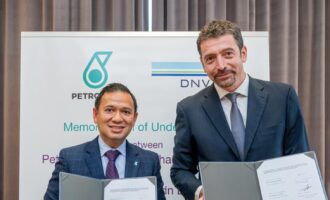
Construction of Zhanjiang Verbund site gets final approval
German chemical company BASF SE has given final approval for the construction of the planned Verbund site in Zhanjiang in the southern Chinese province of Guangdong.
BASF will invest up to EUR10 billion (USD10.2 billion) by 2030 to build the new Verbund site. This makes Zhanjiang one of the biggest foreign investments in China’s petrochemical industry.
The Verbund concept enables the integration of production processes and the efficient use of resources. This saves energy and reduces emissions while at the same time making optimal use of raw materials.
In 2020, BASF started construction of the first plants at the planned integrated Verbund site in Zhanjiang, which will be BASF’s third-largest Verbund site worldwide after Ludwigshafen, Germany, and Antwerp, Belgium. The focus will now be on building the core of the Verbund, which includes a steam cracker and several downstream plants for the production of petrochemicals and intermediates, among others. The site will be built in several phases and is expected to be fully operational by 2030.
The project is on schedule. The first plant for the production of engineering plastics is currently starting up and a plant for the production of thermoplastic polyurethanes (TPU) will come on stream in 2023.
The Verbund site in Zhanjiang will give BASF greater access to the growing Asian markets. With a total investment volume of around EUR10 billion, it is one of the biggest foreign investments in China’s petrochemical industry.
BASF has been active in China since 1885 and is today the country’s largest foreign investor in the chemical industry. The company is committed to operating its Verbund sites sustainably and in an environmentally responsible manner. The company has set ambitious targets for reducing greenhouse gas emissions, water consumption, and waste generation. These targets are based on the company’s 2030 Strategy and the United Nations’ Sustainable Development Goals (SDGs).
The Zhanjiang site will contribute to these goals. For example, BASF plans to use advanced process technologies to significantly reduce greenhouse gas emissions compared to conventional processes. The new Verbund site will also feature state-of-the-art wastewater treatment facilities.









